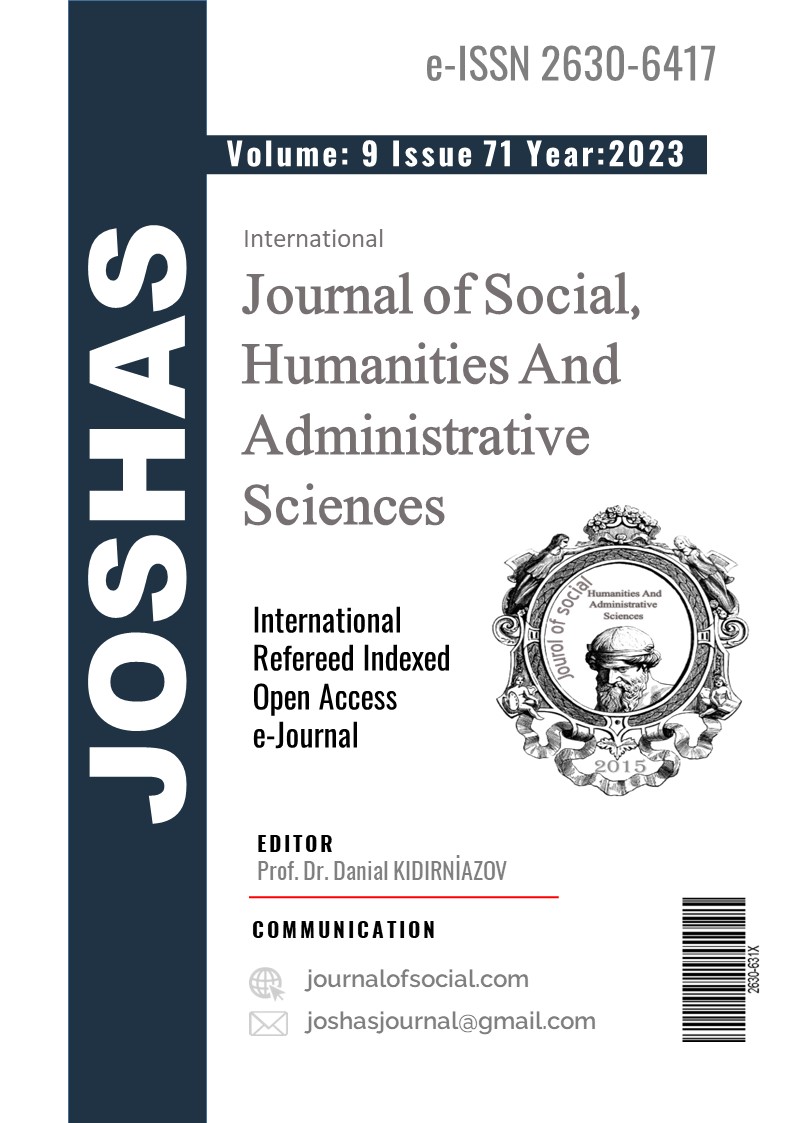Uzaktan Eğitim Sonrasinda İlkokul Öğrencilerindeki Değişimlerin Sınıf Öğretmenlerinin Görüşlerine Göre Değerlendirilmesi
Author :
Abstract
Sınıf öğretmenleri yüz yüze eğitim verirken uzaktan eğitim sürecine hazırlıksız geçiş yapmış bunun sonucunda da birçok güçlükle karşılaşmışlardır. Bu durum sınıf öğretmenlerinin yüz yüze eğitime ve uzaktan eğitime karşı düşüncelerinde büyük değişimler yaratmıştır. Bu çalışma ile sınıf öğretmenlerinin hem yüz yüze hem de uzaktan eğitim tecrübelerini karşılaştırarak her iki eğitim biçiminin ilkokul öğrencileri üzerindeki etkileri ile bu eğitim biçimlerinin güçlü ve güçsüz yönlerinin ortaya çıkarılması amaçlanmaktadır. Yapılan araştırmanın temel problemi ise uzaktan eğitim sürecinin sonunda ilkokul öğrencilerinde ortaya çıkan değişimlerin neler olduğunun sınıf öğretmenlerinin görüşlerine göre ortaya çıkarılmasıdır. Çalışma 2021-2022 eğitim öğretim yılında yapılarak araştırmanın çalışma grubunu Mersin İli Tarsus İlçesinde kamu okullarında çalışan 20 sınıf öğretmeni oluşturmaktadır. Araştırmanın verileri nitel araştırma yöntemlerinden, fenomenoloji deseni kullanılarak toplanmış, veri toplamak için ise yüz yüze görüşme tekniği tercih edilmiştir. Veriler, araştırmacı tarafından yarı yapılandırılmış görüşme formları hazırlanarak toplanmış ve içerik analizine tabi tutulmuştur. Verilerin elde edilmesi için katılımcılara “Salgın süreci öncesi ve sonrasında yüz yüze ve uzaktan eğitim karşılaştırması yaparak öğrencilerinizde gözlemlediğiniz değişimler nelerdir? Açıklar mısınız?” Sorusu sorulmuştur. Yapılan araştırmada uzaktan eğitimden yüz yüze eğitime tekrar ödnüldüğünde, 10 katılımcı öğrencilerde akademik gerileme, 5 katılımcı okul kültürüne uyumda sorun, 3 katılımcı asosyallik ve 2 katılımcı ise öğrencilerde hareketsizlik anlamında değişimler gözlemlediklerini belirtmiştir. Araştırma sonucunda, katılımcıların görüşlerinden hem akademik hem de sosyal anlamda yüz yüze eğitimin ilkokul öğrencilerinin gelişimine daha uygun olduğu, öğrencilerin ve öğretmenlerin yüz yüze eğitimde daha mutllu oldukları sonucuna ulaşılmıştır.
Keywords
Abstract
Classroom teachers have made an unprepared transition to the distance education process, and as a result, they have encountered many difficulties. This situation has created great changes in the thoughts of classroom teachers towards face-to-face education and distance education. With this study, it is aimed to reveal the effects of both education forms on primary school students and the strengths and weaknesses of these education forms by comparing both face-to-face and distance education experiences of classroom teachers. The main problem of the research is to reveal the changes that occur in primary school students at the end of the distance education process, according to the views of the classroom teachers. The study was carried out in the 2021-2022 academic year and the study group of the research consists of 20 classroom teachers working in public schools in Mersin Province Tarsus District. The data of the research were collected using the phenomenology pattern, one of the qualitative research methods, and face-to-face interview technique was preferred to collect data. The data were collected by preparing semi-structured interview forms by the researcher and subjected to content analysis. In order to obtain the data, the participants were asked, “What are the changes you observed in your students by comparing face-to-face and distance education before and after the epidemic process? Can you explain?" The question has been asked. In the research, 10 participants stated that they observed changes in students in terms of academic regression, 5 participants had problems in adapting to school culture, 3 participants stated that they observed changes in terms of asocialization and 2 participants in terms of inactivity. As a result of the research, it was concluded that face-to-face education is more suitable for the development of primary school students, both academically and socially, and students and teachers are happier in face-to-face education.





